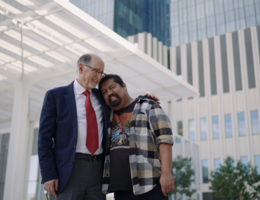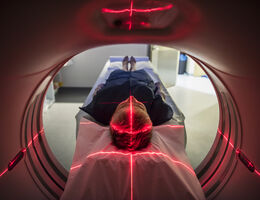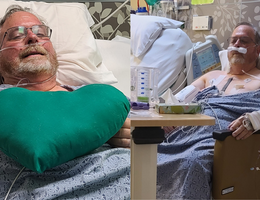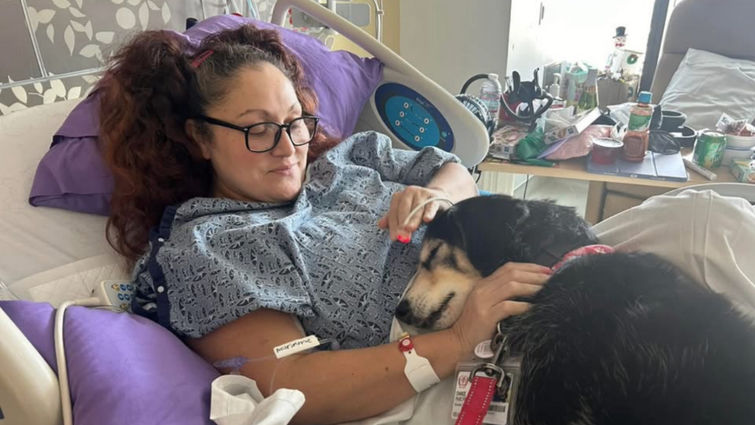
Desiree Damian being visited by Loma Linda University Health therapy dog, Chance, before her heart transplant.
For much of her life, Desiree knew something was wrong with her heart, even when others didn’t see it.
Diagnosed with hypertrophic obstructive cardiomyopathy (HOCM) as a teenager, Desiree spent decades grappling with the condition. HOCM, a form of hypertrophic cardiomyopathy (HCM), is a disease in which the heart muscle becomes abnormally thick, making it harder for the heart to pump blood. Though often manageable, it can become life-threatening — as it did in Desiree’s case.
“I was diagnosed as a teen,” Desiree said. “I just took my medication and assumed it was treating me. Out of sight out of mind, in a way.”
For years, she lived with shortness of breath and fatigue, but regular visits to cardiologists and emergency departments felt normal. So normal that she would sometimes brush off episodes.
As an adult, things worsened. She struggled with increasing shortness of breath, chest pain, and a sensation of her heart pounding even while at rest. Eventually, walking around the grocery store became difficult.
Desiree prioritized her health after her brother passed unexpectedly. But as her health declined, doctors in the high desert weren’t giving her the care she knew she needed.
A turning point came when Desiree sought care at the Hypertrophic Cardiomyopathy Clinic at Loma Linda University Health, one of the few specialty programs in the region dedicated to diagnosing and managing this rare heart condition. At LLUH, she met Diane Tran, MD, an advanced heart failure and transplant cardiologist and director of the HCM clinic.
“Dr. Tran was the first one who really looked into my symptoms and took me seriously,” Desiree said.
Upon evaluation, Tran identified that Desiree’s condition had progressed severely. “Desiree was in stage 3 heart failure,” Tran said. “Her obstruction was significant, and her heart function was deteriorating.” Traditional medications and surgical options were no longer effective. Desiree needed a heart transplant.
The idea of a heart transplant was not just a medical decision—it was a deeply emotional one, tied to painful memories of her mother’s battle with heart disease. Growing up, Desiree watched her mother struggle with health problems that seemed to come and go without clear answers, and eventually, her mother underwent a heart transplant. The loss of her mother after the procedure left Desiree with deep reservations about the prospect of following a similar path.
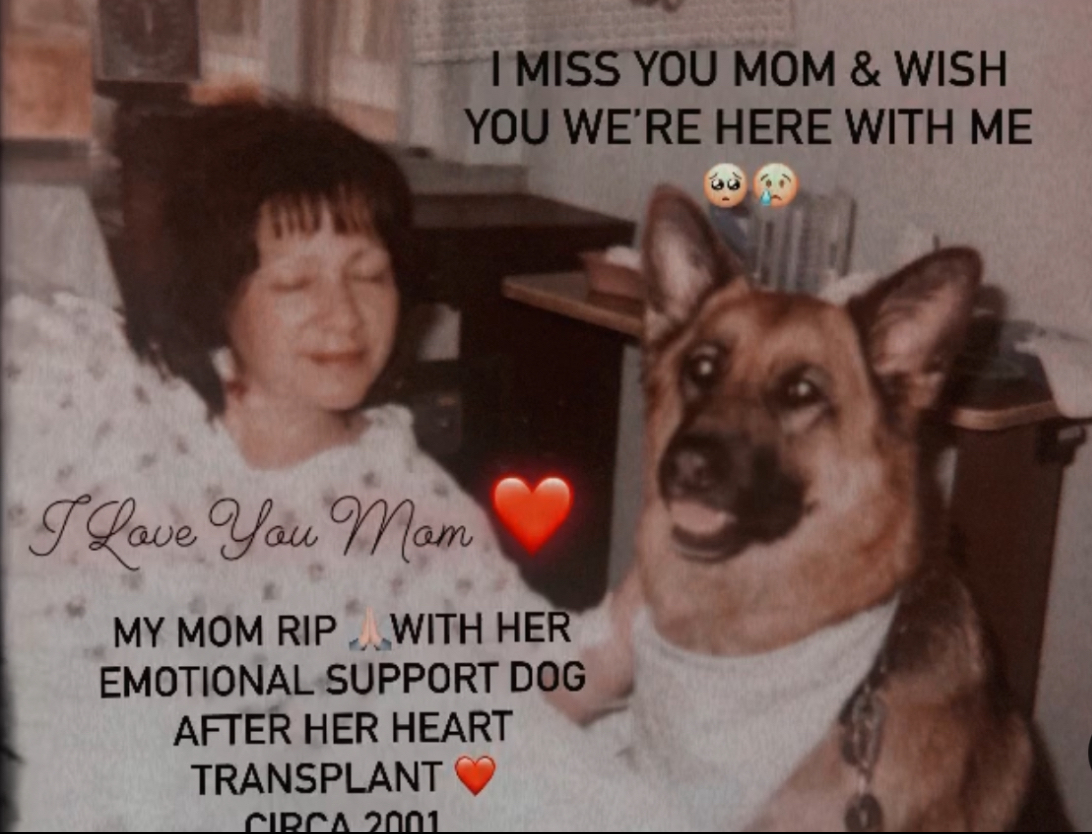
Desiree's mother after her heart transplant in 2001
“I didn’t want to put my family through the same thing,” Desiree shared. “But eventually, I had to accept that I needed the transplant. I was already living in constant fear of my heart failing. And I wanted to be there for my kids. I wanted to see them grow up.”
Desiree underwent a successful heart transplant at Loma Linda University Health. Though the recovery was long and challenging, she now has a second chance at life.
“I finally have energy. I can breathe. I can walk with my kids. I didn’t realize how much I had missed until I got my life back,” she said.
While Desiree knew her own diagnosis of HOCM was genetic, she could never be sure whether her mother’s health issues were related to the same condition. Tran encouraged Desiree’s family to undergo genetic testing to be sure. The testing showed her daughter also carried the gene for HOCM and had begun experiencing symptoms of her own.
“My daughter is 19 now,” Desiree said. “She started having breathing problems at work, and she got tested. She has it, too.”
Fortunately, her daughter is now receiving care through the same HCM clinic at LLUH — and this time, they are taking early and proactive steps to monitor and manage the condition.
Loma Linda University Health’s HCM clinic is one of the few centers in the region offering a comprehensive, multidisciplinary approach to this complex condition. With specialists in advanced heart failure, cardiothoracic surgery, imaging, and genetics, the clinic tailors care to each patient’s unique needs, from diagnosis to treatment to long-term management.
“Every patient’s HCM is different,” said Tran. "With the collaboration of our echocardiography lab, genetic counselors, and electrophysiology specialists, we can offer tailored care plans that address each patient's unique needs."
For Desiree, that care made all the difference. “Dr. Tran and the team saved my life. I’m grateful every day for how quickly they gave me answers and made me feel like a priority.”
Today, Desiree continues to check in regularly with the HCM team and supports her daughter through her own journey with the disease. She hopes her story encourages others, especially women, to advocate for themselves when they feel unheard.
“If I hadn’t pushed to find the right care, I might not be here,” she said. “Don’t stop fighting for your health because there are people who will help you. You know your body best.”
If you or a loved one have or suspect you may have hypertrophic cardiomyopathy don’t wait to seek medical advice. Call 909-558-4200 to schedule an appointment or ask your primary care provider for a referral to the Hypertrophic Cardiomyopathy Clinic.

